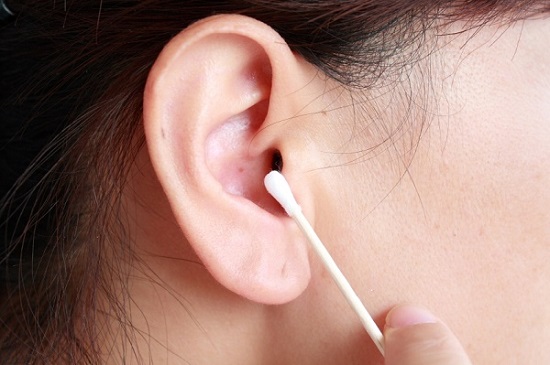
You have probably never noticed, but on the back of any package of cotton swabs there’s a warning that is some version of this:
“Caution: Do not enter the ear canal with this product. Penetrating the ear canal could lead to injury.”
If you have a package of cotton swabs, go take a look for yourself.
The truth is, it’s not just physicians, audiologists, and hearing professionals who advise against the use of cotton swabs to clean the ears—even the producers of cotton swabs believe it’s a bad idea!
So why, if the use of cotton swabs is such a prevalent method of ear cleaning, should it be refrained from? Why are the manufacturers so insistent that you don’t use their own product in this manner?
We’re excited you asked: here are four good reasons to never use cotton swabs to clean your ears again.
1. Earwax is beneficial
Earwax has quite a few useful functions besides being gross. It has antibacterial qualities to protect against infections, it works as an insect repellent to keep bugs out of your ears, and it helps to lubricate the ear canal, which prevents dried out, itchy skin.
2. Cotton Swabs force earwax up against the eardrum
Using cotton swabs is actually dangerous. When you force any foreign object into the ear canal, you’re pushing most of the earwax up against the eardrum. This can rupture the eardrum or can bring about an impaction that will bring about hearing loss.
3. Earwax removes itself
The ear is fashioned to eliminate its own earwax. The normal movements of your jaw—from talking, eating, or yawning—will move the earwax to the outer ear. All that’s called for from you is normal showering and cleaning the external ear with a cloth.
4. Too much earwax removal causes dryness
Earwax has lubricating and antibacterial qualities, so if you eliminate too much, you’ll have a dried out, itchy feeling and will be more prone to infections.
What you can do instead
There are several commercialized (and do-it-yourself) solutions you can use to flush out your ears, which is far less dangerous than inserting foreign objects into the ear canal. But bear in mind, if you’re having issues with excess earwax or you’re having difficulties hearing, it’s usually best to consult a hearing professional.
Hearing professionals are thoroughly educated in the anatomy and physiology of the ear, and can diagnose any issues you may have with earwax buildup or hearing loss. It’s always a good strategy to rule out more significant problems, and if cleaning is all that’s needed, you’ll get the satisfaction of knowing that it’s being done properly.